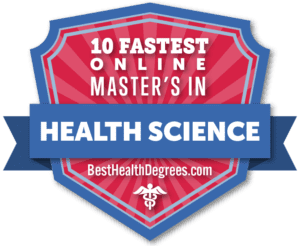
Key Takeaways:
- Accelerated Online MSHS Programs: Complete a Master’s in Health Sciences in 1-2 years while working through accredited online programs.
- Flexible Learning: Earn degrees faster due to the online format and potential credit for work/life experience.
- Wide Range of Specializations: Programs offer various concentrations like Emergency Medical Care, Health Education, and Health Management.
- Career Advancement: An online MSHS degree can lead to higher positions and salaries in the healthcare field.
If you’re considering advancing your health education and don’t want to spend four years in school, you’ll want to consider one of our 10 Fastest Online Master’s in Health Sciences degree programs. An accelerated online health science master’s can be the ticket to a rewarding career.
Colleges and universities, recognizing the growing need in healthcare for master’s prepared employees, have developed online healthcare graduate programs. Online education allows you to continue working while you earn your degree.
Online MSHS programs can last from 1-2 years and may require between 30-48 credit hours, on average. Some programs may award academic credit for your work or life experiences which will reduce your time in school.
We’ve looked at several accredited, online Masters of Science in Health Sciences programs and have identified 10 of the quickest to earn.
Our Method: Ranking the 10 Fastest Online Health Science Master’s Degrees for 2020
To rank the 10 Fastest Online Health Science Master’s Degrees for 2020, Best Degrees editors researched accredited, trusted programs of all kinds. From our initial pool, we ranked programs according to price, accreditation, reputation, and salary potential, using data from IPEDS and Niche, U.S. News and World Report, and other higher education rating publications.
1. Western Carolina University
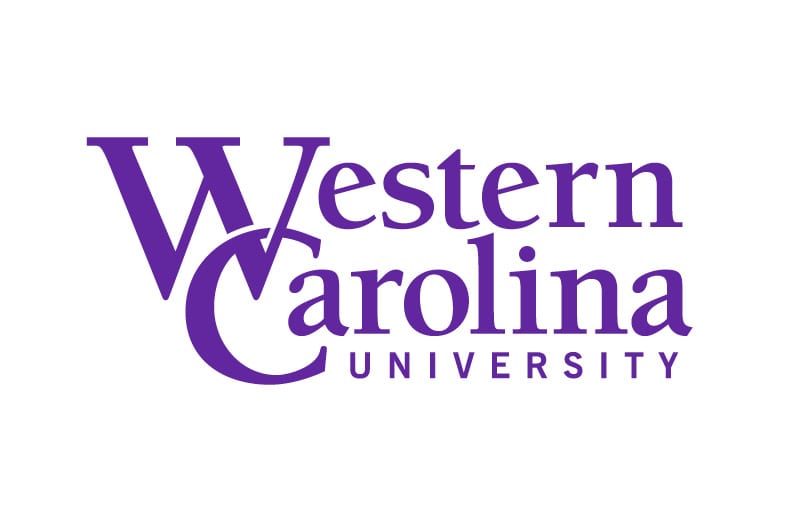
This North Carolina university has a 100% online Master’s in Health Sciences which requires 30 credit hours. The program offers concentrations in Emergency Medical Care, Health Education, Health Management, and Nutrition.
You’ll need an undergraduate GPA of 3.0 or more, GRE scores (waivers available), letter of recommendation, and other documents. Of the 30 credit hours required, 15 hours will be in your concentration. You’ll also take core courses in topics such as statistics, research methodology, and healthcare policy.
Western Carolina University started as the Cullowhee Academy in 1889 and is part of the North Carolina University System. The school has over 12,000 students enrolled and is accredited by the Southern Association of Colleges and Schools Commission on Colleges (SACSCC). The College of Health and Human Sciences also holds individual program accreditation.
Because of state regulations, the program is unable to accept students from Iowa, Michigan, Minnesota, and Oregon. Here’s additional State Authorization information.
Fast Fact: Graduate Scholarships Available
Degree: MS in Health Sciences
Click here to learn more about the MHA program!
2. Winston Salem State University

This Master’s of Healthcare Administration (MHA) degree requires 40-credit hours for completion and is offered completely online. If you’re looking to advance your career with increased skills in management and organization, this may be a program to consider.
Healthcare studies include law and ethics, finance, strategic planning, grant writing, leadership, as well as communication, etc. This is a cohort program and you’ll take the 13 required classes in a prescribed order. You can complete this program in two years.
Money Magazine has named Winston-Salem State University the #1 public HBCU in the U.S. and Washington Monthly considers the school as one of its “Best Bang for the Buck.” This university holds accreditation from SACSCC and this MHA program is accredited by Commission on Accreditation of Health Management Administration (CAHMA).
Fast Fact: WSSU was founded in 1892 by the son of former slaves
Degree: MHA
Click here to learn more about the MHA program!
3. University of Pennsylvania
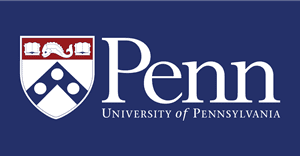
You can earn an Ivy League degree with this hybrid Master of Health Care Innovation (MHCI). This program can be completed within 20 months and you can expect to spend 5 days on the Philadelphia campus each summer.
The program is built around 7 core courses, covering topics in health care operations, the American health system, economics, operations, etc. You’ll learn from participation in virtual labs, where you’ll apply what you’ve learned to a healthcare setting. UPenn attracts guest speakers from healthcare and industry who lecture on-campus and through webinars. The MHCI program utilizes a cohort model to foster networking. You’ll be taught by faculty from Penn Medicine Center for Health Care Innovation, Perelman School of Medicine, Penn Law, and Wharton. If you’re a working healthcare professional and want to apply for this program, you’ll need at least 3 years work experience, a bachelor’s degree, and provide documentation of academic transcripts, letters of recommendation, etc.
Fast Fact: Benjamin Franklin founded the university in 1740
Degree Offered: Master of Health Care Innovation (MHCI)
Click here to learn more about the MHA program!
4. The George Washington University
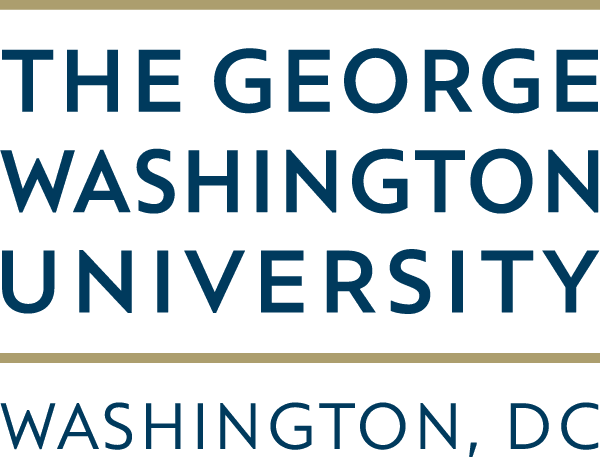
George Washington University offers numerous choices for its online MS in Human Services. Depending on your career goals, you can choose from disciplines in clinical or non-clinical areas. For instance, if your interest is clinical, the university offers an MS in Laboratory Medicine, Clinical Microbiology, Immunohematology and Biotechnology, and others. You could also study Clinical Research Administration or Clinical and Translational Research or Bioinformatics. You’ll be able to complete clinical experiences in your local area. Non-clinical studies include subject areas in Healthcare Management, Regulatory Affairs, or Healthcare Quality and Patient Safety. There are other disciplines in Health Sciences offered online and the number of hours required for the degree will vary from 21-52 credit hours. George Washington University has an 82% graduation rate and is named a “Best Bang for the Buck” by Washington Monthly. U.S. News and World Report ranks GWU a “Best Value School” and “Best Colleges for Veterans.”
Fast Fact: 60% of GWU students receive financial aid
Degree Offered: MSHS
Click here to learn more about the MHA program!
5. American College of Healthcare Sciences
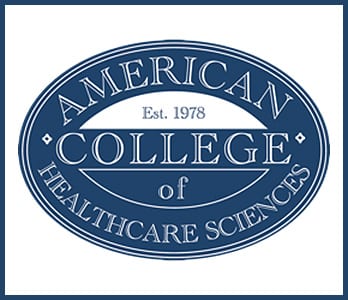
American College of Healthcare Sciences may not be familiar to you, but this school specializes in holistic health distance education. The school is accredited by the Distance Education Accrediting Commission (DEAC) which is a Department of Education approved accrediting agency.
ACHS offers MS degrees in Aromatherapy, Health and Wellness, Herbal Medicine, Complementary Alternative Medicine, and Holistic Nutrition.
The degree requires 36 credit hours for completion and core courses are included in the curriculum. Among foundational studies are anatomy and physiology, assessment and research, wellness coaching, pathophysiology, a capstone project, etc. You’ll then enter your specialty area coursework. Faculty members hold advanced degrees ranging from MS, PhD, and DNP.
Admission to ACHS graduate programs requires a baccalaureate, academic transcripts, letters of recommendation, and an admission assessment. ACHS is a member of State Authorization Reciprocity Agreements (SARA) meaning the school may not be able to accept students from all states. Prior to making an application, you should check to see if your state of residence qualifies.
Fast Fact: ACHS originated in New Zealand in 1976 and, in 1989, was state-licensed in Oregon.
Degree Offered: MS
Click here to learn more about the MHA program!
6. Rosalind Franklin University of Medicine and Science
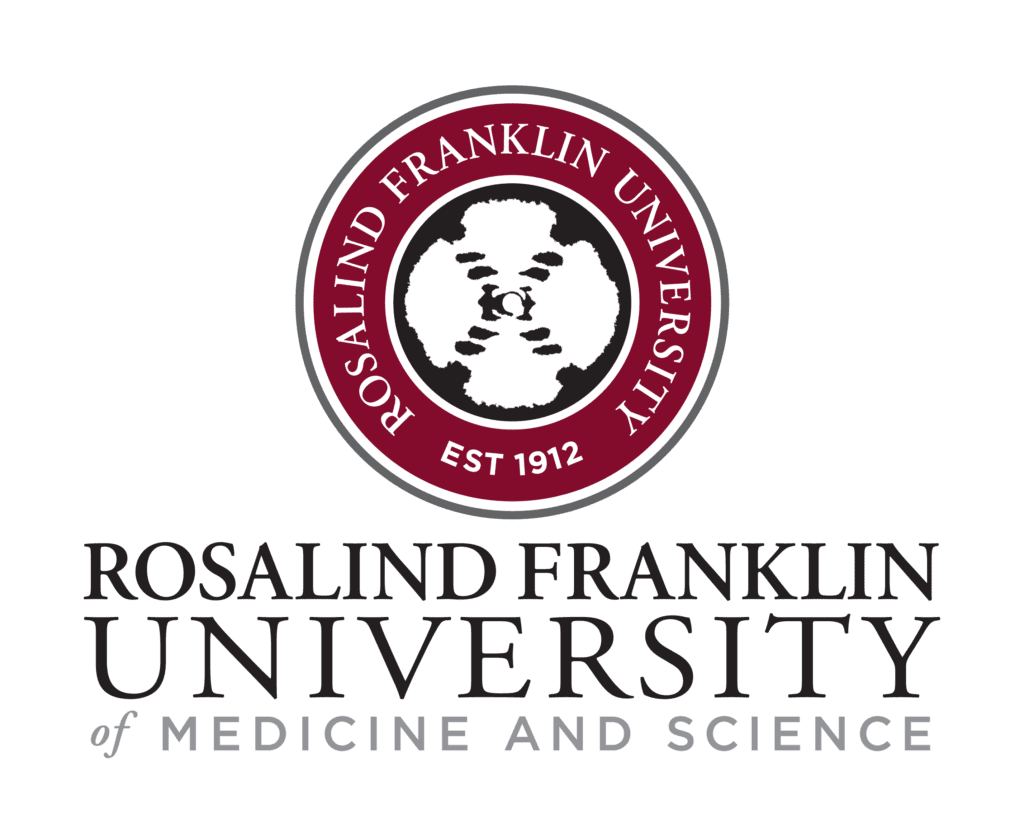
Located in Chicago, Rosalind Franklin University of Medicine and Science, has been offering medical education since 1912. RFU offers an online MS in Health Administration.
The program covers a wide range of healthcare issues from informatics, marketing, law, ethics, insurance, economics and finance, evidence-based management, Human Resources, organizational development, and more. The school is on the quarter system.
Admission for this program will require you to have a baccalaureate degree with at least as 2.75 GPA, academic transcripts, letters of recommendation, as well as personal statement. You won’t have to take the GRE for this program.
Fast Fact: Rosalind Franklin University is named for the woman who, in 1952, first revealed the structure of DNA
Degree Offered: MS
Click here to learn more about the MHA program!
7. Jacksonville University

Jacksonville University suggests this MS in Health Informatics is “Intersecting Health Information Technology, Data, and Healthcare Management.” An innovative program, this health science master’s degree can be completed in one year, attending part-time, and prepares you for certification exams. Requiring 33 credit hours, you’ll take advanced classes in Health Informatics, Coding and Classification, Cybersecurity, Database Management, etc. You’ll also complete a capstone project and choose between an internship or a Research Work Project. If you don’t have a healthcare background, you’ll need to take a prerequisite, two-hour course in Medical Terminology and Healthcare Essential.
As with many graduate schools admission, you’ll need an undergraduate degree (with a 3.0 GPA for automatic admission; conditional admission for less than a 3.0 GPA, and possible GRE requirement.) Transcripts, resume, and personal statement, are also required.
Fast Fact: U.S. News and World Report considers JU a “Best Colleges for Veterans” and a “Best Value Schools”
Degree Offered: MSHI
Click here to learn more about the MHA program!
8. University of Scranton

You’ll complete this Master of Science in Health Informatics in 33 credit hours from nationally ranked, the University of Scranton. The MSHI degree is interdisciplinary in nature and blends studies in informatics, computer science, and healthcare. Subjects include studies in database fundamentals, population, business management, healthcare basics, current trends, and a capstone project. If you don’t have a healthcare background, you’ll be required to take two courses, Introduction to Healthcare and Computer Information Technology for Health Professionals. This university is ranked by Washington Monthly, U.S. News and World Report, and Forbes Magazine as being a high-value school for the money. U.S. News and World Report also ranks the University of Scranton in the top 5 of its “Most Innovative Schools.”
Fast Fact: US is a Catholic, private school, founded in 1888
Degree Offered: MSHI
Click here to learn more about the MHA program!
9. Florida Gulf Coast University

U.S. News and World Report considers Florida Gulf Coast University one of the “Most Innovative Schools” in its 2020 rankings. The university’s MS in Health Science degree is designed to develop leadership and administrative skills. You can expect this 36-credit hour program to explore legal and ethical issues impacting healthcare, understand and apply healthcare statistical information, improve your communications skills, as well as identify and provide healthcare solutions. The degree is offered online, and an administrative internship or capstone project will be required. You’ll need to submit GRE, MAT, or GMAT scores, as well as a graduate degree from an accredited university or college. You’ll need to maintain a 3.0 GPA while enrolled.
Fast Fact: 93% student satisfaction ratio
Degree Offered: MSHS
Click here to learn more about the MHA program!
10. Oregon Health and Science University

Oregon Health and Science University offers a hybrid Master of Science in Healthcare Management degree program. While you’ll take 80% of your courses online, 20% of your studies will be on-campus two Fridays and Saturdays each term on The Portland, Oregon campus. You can complete the health science master’s program’s 52-credit hours in 42 months. Among the subjects you’ll explore healthcare financial management, ethics, healthcare legislation and regulations, planning and strategy, communications, as well as a capstone project. This program is designed for working healthcare professionals and is offered part-time to better accommodate your schedule. The degree is offered through the Division of Management which is part of the OSHU’s School of Medicine.
Fast Fact: OSHU enrollment is over 4,700 students
Degree Offered: MS in Health Management
Click here to learn more about the MHA program!
Is a Health Sciences Master’s a Good Career Choice?
Healthcare is one of the fastest-growing fields in the U.S. today; and, while entry-level careers may require a B.S. in Health Science, those holding a Master of Science in Health Science (MSHS) degree have the opportunity to advance their positions.
Health Science is a multidisciplinary field that appeals to those interested in clinical or nonclinical positions. A health science master’s can lead to positions in medical laboratories, while a nonclinical track can lead to a variety of management and administrative positions. Areas such as healthcare informatics, healthcare administrator or manager, etc., are open for master prepared students.
The Bureau of Labor Statistics (BLS) estimates healthcare careers will grow at a much faster than average rate of 11%-14% between 2018-2028. Further, the BLS suggests that master’s prepared students earn approximately $40,000 more annually than those with a bachelor or associate degree.
The professional opportunities, the relatively brief educational requirements, and the ability to earn the degree online, makes a MSHS an attractive educational and career choice.
What if I Don’t Want a Full Master’s Degree?
Not everyone needs a health science master’s degree. For instance, if you’ve worked in healthcare for several years and want to earn certification in a specific area, you may be able to earn that certification online. Accredited community colleges and universities typically will offer certificates.
You may be able to earn online, graduate certificates in public health, healthcare administration, health informatics, biostatistics, and epidemiology, or community health, research, and others.
Health science certificates will help develop your skills through pre-requisite courses or specific graduate health science topics. Depending on your career, employers may look for certificate training in specific areas.
For example, a graduate certificate in community health education may include studies in communications, educational theory, program development and assessment, curriculum design, etc.
A certificate in epidemiology may focus on specific topics such as disease prevention, health promotion, research methods, and more.
A graduate certificate can typically be completed in 9-12 months, although some certificates may take longer. Costs for a certificate reflect the school’s tuition and may range from a few thousand dollars and up. You may qualify for Federal Financial Aid (provided you file a Free Application for Financial Student Aid (FAFSA®). Your employer may cover the cost of a certificate as part of your overall benefits package.
Although not on the graduate level, health science certificates are also available for medical assistants, dental hygienists, radiology, or laboratory technicians.
Certificates are an excellent way to keep your skills sharp and up-to-date on the latest advances in your field.
What Are the Advantages of an Accelerated Health Science Master’s?
Obviously, the biggest advantage of an accelerated program is the reduced time commitment. But, how does an accelerated program work?
An accelerated program typically combines undergraduate and graduate studies and allows you to gain both degrees simultaneously.
Accelerated and dual degrees are not the same. Dual degrees are two separate disciplines, but still the same degree. For instance, you could pursue a dual degree in BS in Health Sciences with two different concentrations. An accelerated program blends an undergraduate with a graduate degree curriculum.
Accelerated programs allow you to earn a BS and MS in Health Sciences in four years, rather than 6 or more. Once you complete certain undergraduate prerequisites in the health sciences concentration, you usually can begin taking graduate MSHS coursework. You’ll still be required to complete general education coursework such as English, mathematics, social sciences, etc.
Perhaps one of the most popular health sciences accelerated degrees is the Master of Science in Health Sciences – Physician Assistant degree. This degree can take 2-3 years to complete.
These are usually hybrid programs, perhaps requiring some on-campus attendance, and certainly clinical experiences. Didactic coursework is most often delivered online but laboratory classes may be held on-campus. Clinical experiences will be conducted under a preceptor in specialty areas such as general surgery, pediatrics, emergency medicine, etc.
An accelerated program, while shorter in length, will require more work and dedication; but, the end result will be worth it. Additionally, if cost is a factor, check out our affordable online MHA programs.
Related Rankings: